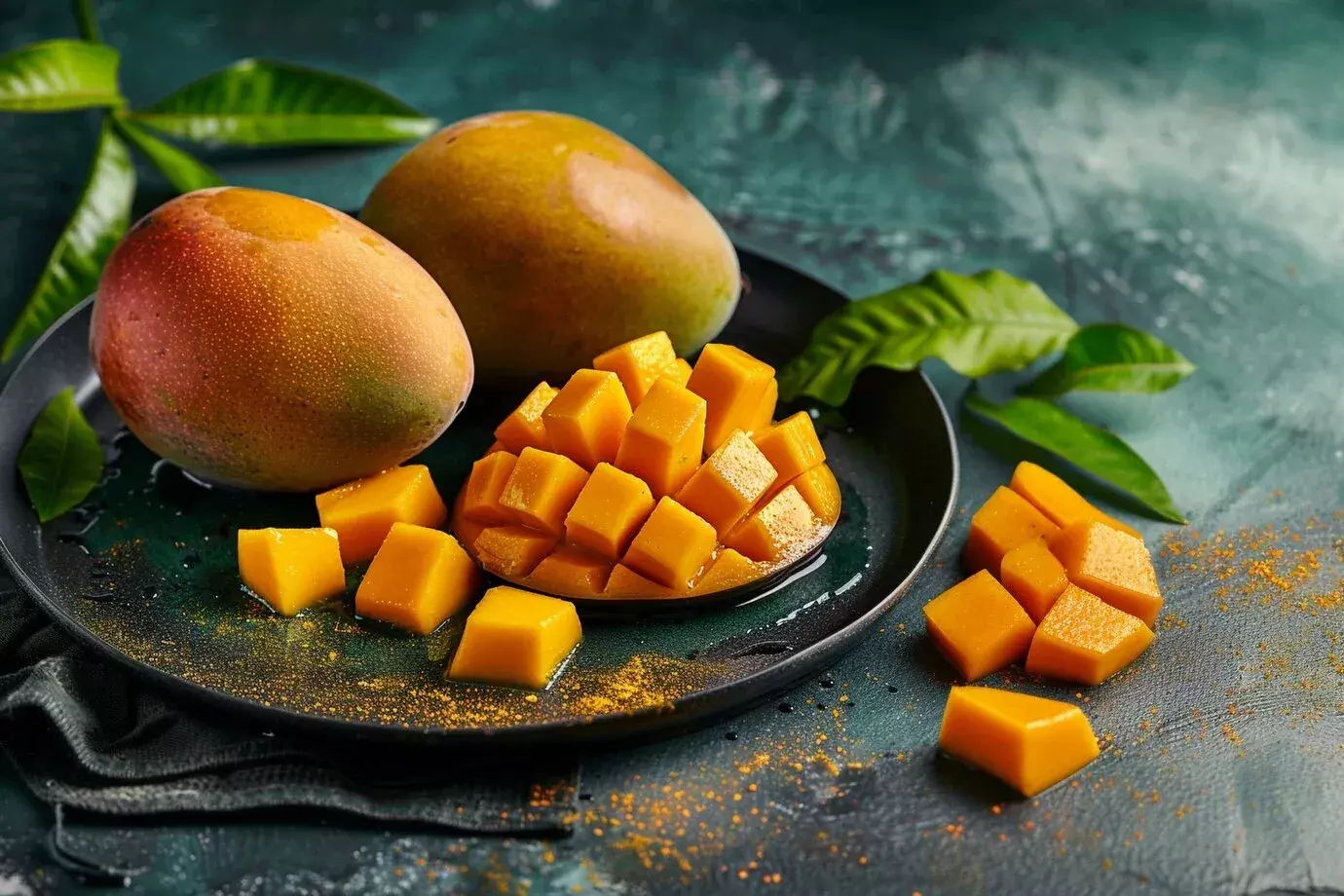Indian mangoes and diabetes: Two recent studies show surprising metabolic benefits

New Delhi: Two recently published clinical studies done by Fortis C-DOC hospital for Diabetes and Allied Sciences, New Delhi with the National Diabetes, Obesity and Cholesterol Foundation (N-DOC) in New Delhi revealed how a monitored consumption of a variety of Indian mangoes within restrictive diets may offer measurable benefits in glycemic control and metabolic health among individuals with type 2 diabetes.
This is a significant departure from conventional dietary advice for diabetes management. These comprehensive findings were published in the European Journal of Clinical Nutrition (Accepted for publication) and the Journal of Diabetes & Metabolic Disorders (published and online on August 6, 25), with evidence-based reassurance for including mangoes in prescribed diabetic diets.
The study has been co-authored by Dr. Anoop Misra, Padma Shri, Executive Chairman & Director, Diabetes and Endocrinology, Fortis C-Doc Hospital for Diabetes and Allied Sciences, who is the senior author and study lead, with Dr. Sugandha Kehar, Fortis C-DOC Hospital, New Delhi, who is the first author for both studies.
Study 1: European Journal of Clinical Nutrition: Study with Continuous Glucose Monitoring and Oral Tolerance Test
Study Findings:
• Oral Tolerance Test- Mangoes produced a similar or lower (non-significant) glycemic (blood sugar) response than bread in both diabetic and non-diabetic individuals.
• CGM analysis- Over three days, the Mean Amplitude of Glycemic Excursion (MAGE, a measure of harmful glucose variability) was significantly lower after mango consumption (as compared to bread) in the diabetic participants, suggesting greater glycemic stability (a beneficial response).
Methodology:
In this study published in EJCN, researchers assessed 95 participants (45 with T2D and 50 non-diabetic) using Oral Tolerance Tests (OTT, a two hour test carried out after the consumption of 250 gm of mangoes or similar calorie bread, with multiple blood sugar estimations) and Continuous Glucose Monitoring (CGM, a three day continuous sensor based sugar monitoring) to evaluate the impact of three common Indian mango varieties- Safeda, Dasheri, and Langra, compared to glucose and white bread.
Study 2: Journal of Diabetes & Metabolic Disorders: 8-Week Randomized Trial
Study Findings:
• Both the mango groups experienced reductions in fasting blood glucose, HbA1c (long term measure of average glucose), and insulin resistance (HOMA-IR, and indicator of effectiveness of internally produced insulin).
• Mango consumption led to decreased body weight, waist circumference (indicative of unhealthy abdominal fat), and skinfold thickness (indicative of metabolically unhealthy fat under the skin) indicating the stability of body.
• HDL (good cholesterol) levels improved significantly.
Methodology:
This was a randomized controlled trial held among 35 adults with T2D who consumed either 250 grams/day (one small-sized fruit) of Safeda or Dasheri mangoes, or an equivalent amount of white bread at breakfast for 8 weeks.
Dr. Anoop Misra: "We showed the benefits of small doses of mangoes in place of carbohydrates (bread) in breakfast in two detailed studies for the first time, laying to rest all speculations regarding adverse metabolic effects of its consumption. However, these must be incorporated into diets under strict supervision of nutritionists—within prescribed limits and not in excess—and aligned to the individual’s clinical profile, as judged by physicians."
Dr. Sugandha Kehar: "Mangoes are a much-loved fruit and maligned for their possible glucose and weight-elevating effects. These studies, painstakingly done by us, show that within prescribed diets, consumption of mangoes is not detrimental to blood glucose and may even be beneficial."
Rethinking Carefully About Mangoes in Indian Diabetic Diets
India has one of the world’s highest numbers of T2D patients, and simultaneously, mangoes are a staple, traditional, and much-loved summer fruit. Traditionally discouraged in diabetic diets due to their perceived sugar content, mangoes may now be reconsidered as a viable component of moderated, calorie-restricted meal plans, especially when replacing refined carbohydrates like white bread.
Note: Both studies were conducted at Fortis C-DOC and the National Diabetes, Obesity and Cholesterol Foundation (N-DOC) in New Delhi. The trials have also received ethics approvals and were registered on ClinicalTrials.gov. Funding support was provided by the Indian Council of Medical Research.



